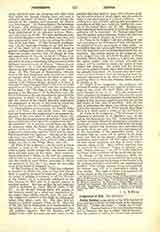

Judica Sunday, name given to the fifth Sunday of Lent, and derived from the first words of the Introit of that day: “Judica me, Deus”—”Judge me, O God” (Ps. xlii). Passion Sunday is the more common name, and in Germany this day is called “Black Sunday“, from the custom of veiling the crosses and statues in the church, which was formerly done at the words in the Gospel “Jesus hid Himself”, but is now done on the previous evening. Marten says that in very early times this day was called “Dominica mediana”, a title that seems more properly to belong to mid-Lent Sunday. On Judica Sunday several significant changes take place in the Church‘s Liturgy. The Judica psalm is not again said at the beginning of Mass until Easter Day; the Gloria is omitted, to signify the ignominy of Christ’s Passion, when His glory was for the time being laid aside; and the whole spirit of the Office and Mass is one of solemn preparation for the great events of the coming Holy Week. At Rome the station on this day was formerly observed in the Vatican Basilica.
G. CYPRIAN ALSTON

